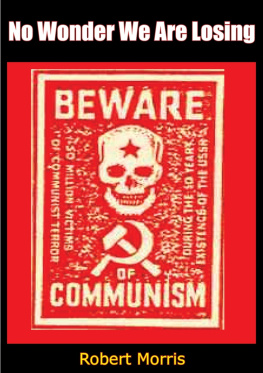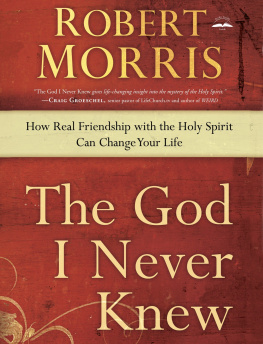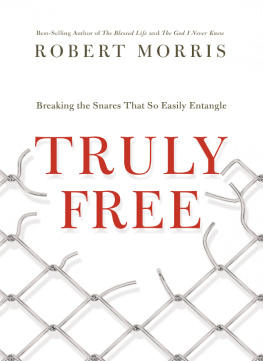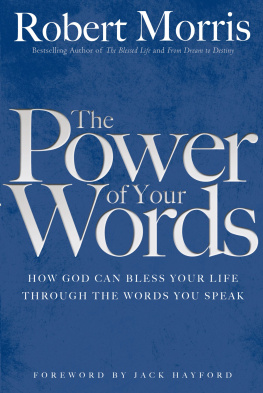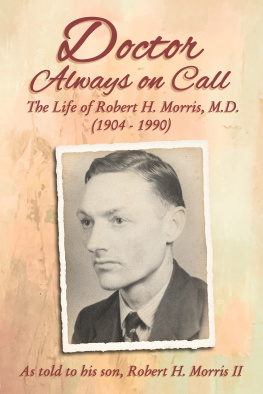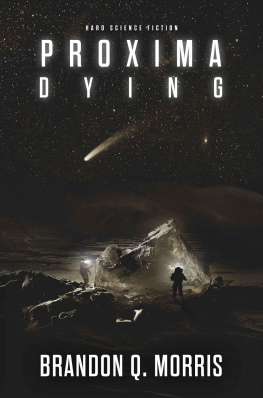This edition is published by Muriwai Books www.pp-publishing.com
To join our mailing list for new titles or for issues with our books muriwaibooks@gmail.com
Or on Facebook
Text originally published in 1961 under the same title.
Muriwai Books 2017, all rights reserved. No part of this publication may be reproduced, stored in a retrieval system or transmitted by any means, electrical, mechanical or otherwise without the written permission of the copyright holder.
Publishers Note
Although in most cases we have retained the Authors original spelling and grammar to authentically reproduce the work of the Author and the original intent of such material, some additional notes and clarifications have been added for the modern readers benefit.
We have also made every effort to include all maps and illustrations of the original edition the limitations of formatting do not allow of including larger maps, we will upload as many of these maps as possible.
NO WONDER WE ARE LOSING
BY
ROBERT MORRIS
TABLE OF CONTENTS
Contents
TABLE OF CONTENTS
DEDICATION
Dedicated to my father, John Henry Morris, who died here in Point Pleasant on August 8, 1955 while this book was being written. In his day, he was quite a fighter for what he thought was right.
PREFACE
This book is not an autobiography. An autobiography, I believe, should more properly be undertaken at a later stage of a mans life when he can survey the whole span of his career and weave from the pattern of passed events his own interpretation of lifes content.
This book has a more limited objective. Over the last fifteen years I have been cast into a particular current of life. My undertaking here is to set down my own experiences for what they are worth and to see them in the perspective of the fast-moving world.
This book generally will be concerned with the response, as I saw it, of free men to the pressure of Communism, that twentieth century revolutionary movement which first captured power in Russia and has since extended that power to the Elbe River and the China Sea, that revolutionary movement whose ultimate aim is world dominion. I shall be concerned not only with Communisms territorial expansion but also with its effortssometimes overt, sometimes covert, but unceasingto undermine the foundations of moral and political authority in every land that has not yet fallen under its domination.
More particularly, this book will dwell upon my own role, insignificant though it was, in this crisis. I am 40 years old, and my life has been dominated by two of the greatest wars in history, followed by periods of peace like no other peace known to man. Both post-war periods were, in reality, truces in which war was continued by other means. It was my lot to take part in one of these great wars and to play a special role in both periods of martial peace. In each case, my role inevitably bore on a global crisis, a crisis in large measure working itself out, between titanic outbursts, through the shadowy activities of the hidden people. These people are, of course, the Communists and those manipulated by them. Their success in the free world depends greatly on the obscuring of their true aims, activities and, in many cases, identities. Our future hinges in large part on bringing them to light. In this task, a kind of hidden war, I also served.
Summer 1955
Point Pleasant, New Jersey
It is now April 1961, and I am now in Dallas, Texas where I am President of the University of Dallas. My publisher and I decided to bring out this sixth edition of No Wonder We Are Losing because three years have now elapsed since the volume first appeared. Many of the strands of the conspiracy that we had sketched and were sketching have become greatly distended. Soviet conquests have been continuing during these years and now at an accelerated pace. Not only do they broaden the scope of the whole picture but they bring into bolder relief the central theme of this workthe gradual loss of our heritage without a response on our part worthy of our great traditions. I have tried to tie these strands together in a new added chapter XVI.
It is said, repeatedly, that we are at last awakening to the nature of our dedicated enemy. But the whole record of the last three years even, belies this awakening. Our egregious errors of the last three years are merely variations of those that brought disaster to us in the preceding twelve years. The lessons that we should have learned from the fall of mainland China were ignored completely when the Soviets struck slyly in Cuba. They are being ignored today in Africa.
We are denouncing Soviet conquests rather eloquently, but, only after they become accomplished facts. While the conquests are in process and being consummated by the disguised advance guard of Khrushchev, we are floundering and even collaborating with those who have us marked for destruction. Our professions of principle are lofty and eloquent but the implementation of these principles is inept.
April 1961
Dallas, Texas
1THE RAPP-COUDERT COMMITTEE
My recollection of the summer of 1940 is that it was hot, sultry and heavy. Hitlers Panzer divisions had overrun France and the Low Countries, and were poised on the Channel to strike at England. It was a time of grim foreboding.
The triumphs of Nazi barbarism were bad enough. But at the same time another totalitarian force had begun to expand. Until August 23, 1939, Communism was master in only one country, the Soviet Union, smaller than Russia of the Tsars. But the Nazi-Soviet pact signed on that black day of 1939 by Joachim Ribbentrop and Vyacheslav Molotov not only enabled Germany to invade Poland a week later, but launched Soviet Communism on a series of struggles which ultimately placed an additional 800 million people under its shadow. On September 17, Soviet legions invaded Eastern Poland in accordance with the Hitler-Stalin agreement and within four months these territories were formally incorporated into the Soviet Union. In November 1939, the Soviets invaded Finland, and that three-and-a-half month war ended with the Finns ceding strategic territory to the USSR. In June 1940, a Soviet ultimatum to Rumania resulted in Russian annexation of Bessarabia and Bukovina. That same month, Stalins armies had occupied Estonia, Latvia and Lithuania. Thus through its alliance with Nazi Germany, world Communism in less than a year acquired European territory of 13 million people.
In that summer of 1940, when Churchill was calling Britain to its finest hour, I was a young lawyer a year out of law school working with Hines, Rearick, Dorr & Hammond, a good firm in downtown New York. Actually I worked out of the Office of H. Alexander Smith, later to become senator, who was associated with that firm. I had lived in New Jersey all my life and had just come to New York. I was low man on a legal team defending the carpet industry in an anti-trust action brought by the Department of Justice. My particular role was to comb the correspondence of the large carpet companies for papers that would show either agreement to restrain free trade or the absence of such agreement. It was heavy, ponderous work. The task was made the much more oppressive by the unfolding world events.
One day I undertook to escape from it all. I attempted to enlist in a Navy officers candidate program. But it turned out that I was partly color blind, and the Chief Petty Officer who tested my color perception told me that I might as well be resigned to the fact that I would never be a Navy officer.


